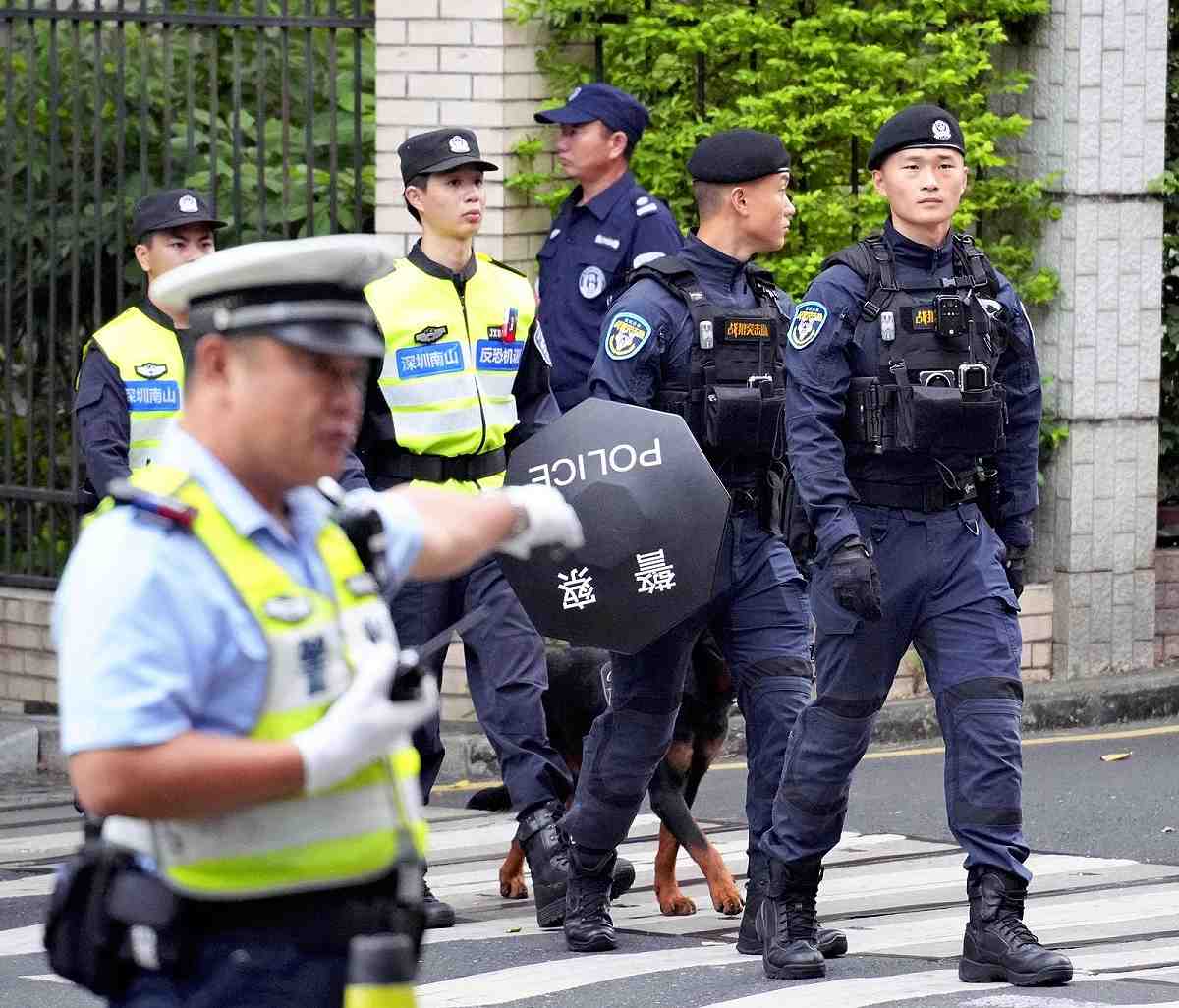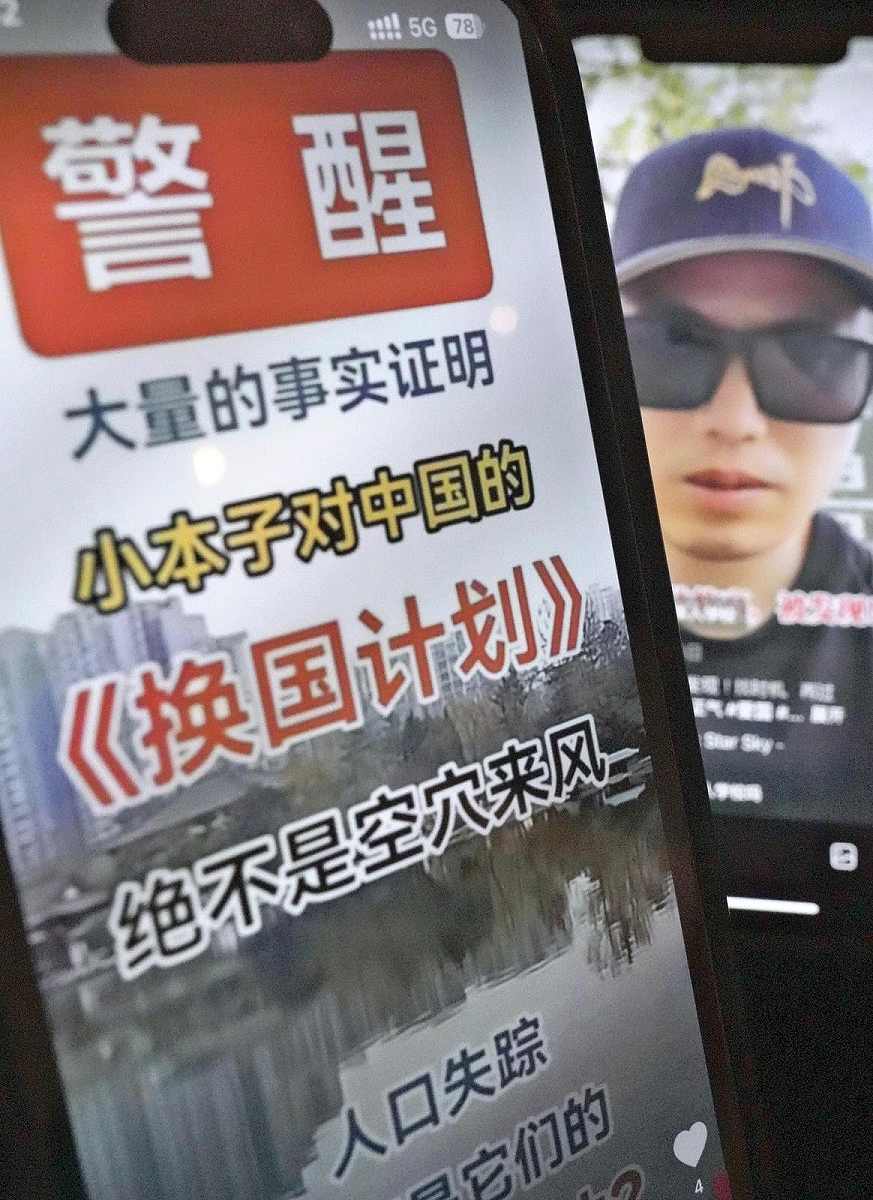Chinese Social Media Still Full of Anti-Japanese Posts 1 Month After Boy’s Fatal Stabbing; Malicious Videos Gain Large Number of Views

Police guard the area around a Japanese school in Shenzhen, China, on Friday.
20:00 JST, October 19, 2024
BEIJING — Even a month after a 10-year-old Japanese boy was fatally stabbed by a Chinese man in Shenzhen, Guangdong Province, Chinese social media is still full of anti-Japanese posts.
On Sept. 18, a 44-year-old Chinese man fatally stabbed the boy on a road near a Japanese school.
Anti-Japanese comments on social media are said to have contributed to incidents in China in which Japanese nationals have become victims. Even now, there are still posts on Chinese social media that are hostile to Japanese schools in the country.
A Chinese-language news report released on Oct. 15 quoted a Japanese media source as saying that the Japanese school in Shenzhen resumed face-to-face classes. In response to this report, several unsubstantiated and malicious comments were posted on social media, saying things such as, “When will all the Japanese schools in China be eliminated?” and “They’re bases for training Japanese spies.”

Offensive posts against Japanese nationals and Japanese schools are seen on Chinese social media on Thursday.
In China, Japanese schools cannot open without the approval of the local government and other authorities, and therefore it cannot be an institution that trains spies, as is being spread on social media. Under Chinese law, textbooks and teaching staff are subject to supervision and checks by the local government.
Online videos that stir up anti-Japanese sentiment tend to get a huge number of views on Chinese social media, and they have been used to attract attention and interest. Chinese authorities can delete unfavorable posts using artificial intelligence. The fact that these malicious posts are not deleted may be because the government overlooks them so people can let off steam.
The Japanese government has requested the Chinese government to crackdown on anti-Japan posts, however, there is little hope that posts hostile to Japanese schools will be removed.
“The [Chinese] government tends to use historical issues when relations between the two countries are not good,” said Prof. Ichiro Korogi of Kanda University of International Studies, who specializes in modern Chinese studies. “It is essential for companies operating in China and individuals to try to protect themselves without making light of the risks.”
Top Articles in World
-

Israeli Ambassador to Japan Speaks about Japan’s Role in the Reconstruction of Gaza
-

Videos Plagiarized, Reposted with False Subtitles Claiming ‘Ryukyu Belongs to China’; Anti-China False Information Also Posted in Japan
-

Chinese Embassy in Japan Reiterates Call for Chinese People to Refrain from Traveling to Japan; Call Comes in Wake of ¥400 Mil. Robbery
-

Russia: Visa Required for Visiting Graves in Northern Territories, Lifting of Sanctions Also Necessary
-

China, India Tapping into Promising African Market; Beijing Announces Tariff Cuts, Both Countries Aim to Expand Exports
JN ACCESS RANKING
-

Producer Behind Pop Group XG Arrested for Cocaine Possession
-

Japan PM Takaichi’s Cabinet Resigns en Masse
-

Japan Institute to Use Domestic Commercial Optical Lattice Clock to Set Japan Standard Time
-

Man Infected with Measles Reportedly Dined at Restaurant in Tokyo Station
-

Israeli Ambassador to Japan Speaks about Japan’s Role in the Reconstruction of Gaza





















